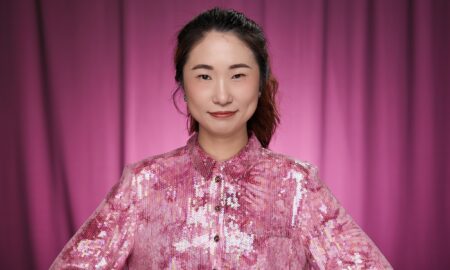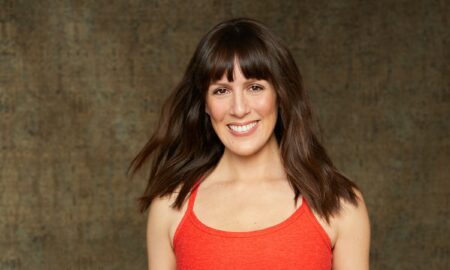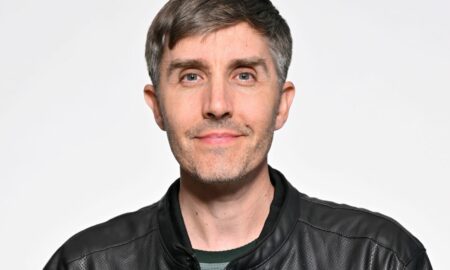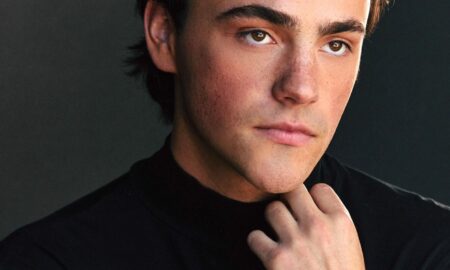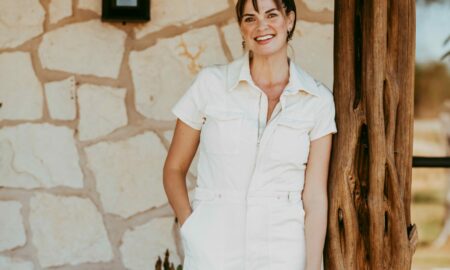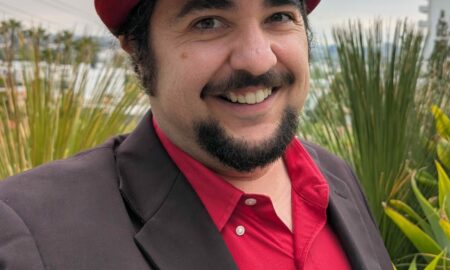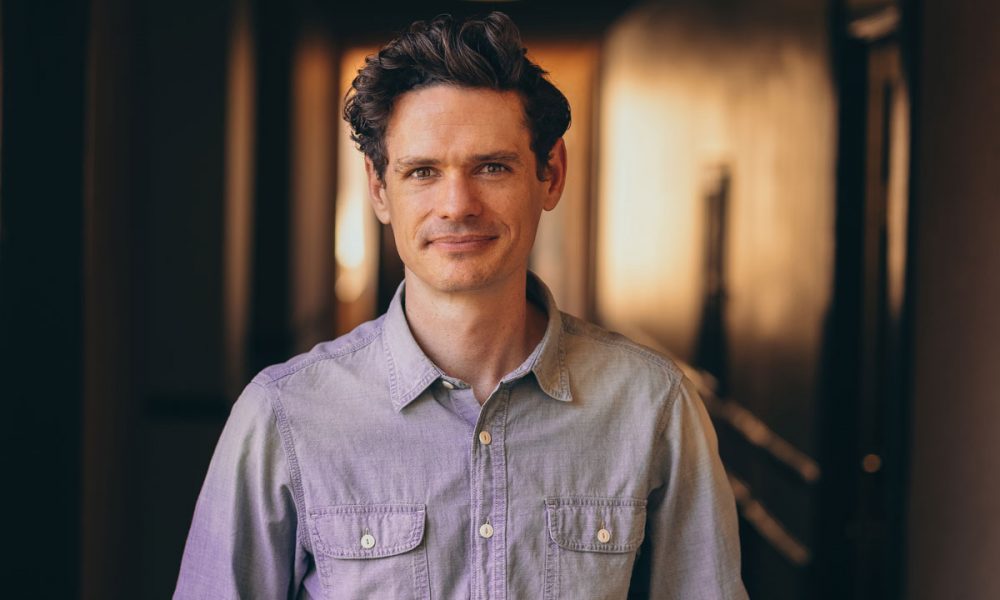

Today we’d like to introduce you to Aaron Jay Rome.
So, before we jump into specific questions, why don’t you give us some details about you and your story.
I came to Los Angeles at the age of 20 to be an actor. I always knew I wanted to write and direct, but accessing emotions was something I had done all my life, so acting was a natural go-to in the beginning. Being a hands-on learner, I skipped college and dove into the industry head first. The only problem was that I had no direction, no mentor, and no working model to emulate. I was like most people who first get here — spinning in circles.
I spent the first nine months of my time in L.A. in acting class and doing background work on giant movie sets. An arm’s reach from my dreams, but way out of my grasp. It didn’t take long to realize that there was no realistic route to becoming a respected actor by doing background work. I then moved behind the camera as a production assistant on small independent films, which lasted for three years. This is where I got my “degree” in filmmaking.
I’d like to stop here for a second and say, up until this point I was very stubborn. Borderline delusional. I was under the impression that I was going to write and star in my own film, like Kevin Smith of Clerks fame, and nothing else would suffice. I was even caught telling a casting director that I didn’t want small roles, but wanted – basically – instant respect, without paying my dues. If I could go back in time and slap myself silly, I’d hop in that De Lorean right now.
Speaking of time jumps, that’s basically all that happened in my career in the first five years. In that time, I became close friends with Dean J. West, Michelle West and Isaiah LaBorde, all Louisiana natives that moved back to take advantage of the flourishing industry in and around New Orleans. With nothing to lose, I followed them to New Orleans. Led by my modified but familiar mantra, “better to be a fish in a small pond than a nobody in an ocean.”
New Orleans is where I booked my first legitimate acting job, a lead role in the film 1959. Things were already looking up compared to my time in L.A. 1959 was a very ambitious film with a very small budget. Utilizing the things I learned as a P.A. I was offered a position as an Associate Producer on the film, as well as adapting the script to something that worked within the confines of the budget as and the confines of what had already been shot. This is where my journey of working with micro budgets began.
I think 1959 may have been a turning point for me. It was supposed to be shot in 6 weekends and turned into six months of weekends. While it was a blast working with my friends, I simultaneously realized I wasn’t ready for stardom. I dissolved my ego, and restarted at the bottom; getting an agent, taking acting classes and eventually booked my first small role in a big film, opposite Will Ferrell in The Campaign.
Looking one of my heroes in the face for 35 takes was my first big sign post that things were going to be okay. That I was in the right place, and my hard work would pay off. Even if it was slower than I originally hoped.
Jumping forward in time again, I moved back to L.A. at the beginning of 2014 with a handful of small roles in big projects under my belt. In the three years, I spent in New Orleans I had gained more credits than most of my L.A. friends had in 10. I felt like I could re-approach the hulking city with a new plan. Critically important to my filmmaking journey and time in Louisiana, was my eyes being opened to real indie film and the likes of the Duplass Brothers. A very special thanks to Ashley Lenz for that.
In comes Go Crazy Go Mad. The $2,000 feature film Ashley Lenz and I co-wrote/ produced/directed and starred in. We knew we were ready to try something crazy, something long form, but something that we could just sweep under the rug if it sucked. A total of 11 people worked on the film from beginning to end and it was shot in just five days. The best part was when we finished, we were actually proud of it. So proud, in fact, that we released it on Amazon and iTunes in May of 2018.
In 2016, I started writing my next film, End Trip, with a friend, Eric LeBlanc. The plan was that I would direct this one solo, using the methods that worked so well on Go Crazy Go Mad, only scaling up the budget considerably. With the exception of flying a “name” actor from Los Angeles to shoot in New Orleans, only to have him ghost the production after a full day of shooting forcing me to take his place as the lead in the film, things went off without a hitch. We shot another feature film in 5 days (excluding the day we had to reshoot) and I would become known in my small circle of friends as the guy to talk to if you wanted to make a film on no budget.
End Trip premiered at Dances With Films at the Chinese Theatres in May of 2018 as 1 of 2 horror features in their midnight programming. The next month End Trip took us to Madrid, Spain where I picked up the Best Director award of the Madrid International Film Festival. End Trip will be released on Friday, June 21st 2019 on Amazon and Vudu first, then rolling out on all other streaming services in the coming months.
I’m currently working with Isaiah LaBorde, Eric LeBlanc and Dean West on my next film, also a horror to be shot in New Orleans. This project will be a little different. Not wanting to work in the zero budget realm forever, I’m taking active steps to garner more awareness from studios and larger agencies. The budget will be much higher, though still under a million, which studios consider ‘micro budget.’ I also recently released a web series called iLove that we submitted to the Emmy’s and got two of our actresses on the ballot, and am prepping for a shoot in Germany starring alongside Ashley Lenz and writer/director Silke Engler, whom we met at the festival in Madrid. That feature film will be a sci-fi horror set to the beautiful backdrop of the German wilderness, called Sunny.
All the buzz around End Trip has been amazing, as well as the prospects on the horizon, but I don’t want to lose sight of where I started. How I felt at the beginning. I remember what it was like sitting in my first roach infested apartment with no air conditioning, looking up into the mansions on the hills with no idea how to get there. So I took some time off and created a course for first time filmmakers called One Grand Film. My goal with One Grand Film is to give anyone looking to start a career in the film industry a clearer path to doing so. Whether you’re a writer, director, actor or producer, One Grand Film’s bite-sized step by step process is easy enough for anyone to follow with the goal of creating a feature film on little to no budget. The best part is, you can do it from anywhere.
We’re always bombarded by how great it is to pursue your passion, etc – but we’ve spoken with enough people to know that it’s not always easy. Overall, would you say things have been easy for you?
I’ve definitely faced a lot of struggles along the way. Not being “from money” comes to mind first. Not having resources to throw at your problems means having to face them head on. Ultimately I think this makes for more resilience, the ability to consider others’ opinions and having true appreciation for the wins and losses along the way.
Also, ego. I have a theory that Los Angeles tends to attract people that have similar feelings about themselves. Feelings of being misunderstood, or having something to prove, or being ‘special’ enough to be in the spotlight. Multiply that times 5 million people and Los Angeles is unlike anywhere on the planet. For me, it was a combination of all of those things. Coming straight out of high school, I still had a very high school mentality where my worthiness in life was based on popularity and status. My personal journey has been crushing all those ideologies and replacing them with my undying urge to tell important stories and to make art. The results are much more fulfilling when you’re not basing your successes and failures on how other people perceive you, but on whether or not you were true to yourself.
My road has also been one of a lack of mentors. There have been very few points along the way in which I’ve had people sitting in the place I’d like to be, directing me in what to do, telling me how they got there. I think not having a mentor in Los Angeles makes the road much harder to navigate. I’ve watched a LOT of YouTube to glean the mindsets of my heroes and adopted digital mentors in the form of podcast hosts like Tim Ferriss. Trying to become a beacon for first time filmmakers through One Grand Film is my attempt to balance out the lack of mentors.
The biggest struggle I’ve been trying to tackle is the lack of transparency between Hollywood superstardom and being outside the machine. One Grand Film is my attempt to illuminate the inner-workings for as many as possible. I think I, and most artists in general, come from a different mindset than that of our parents. We have a goal we want to achieve, with no clear cut path to getting there. It’s hard for outsiders to understand. Constantly making their skepticism known: “It’s really hard,” they say. “Not many people make it.” And the always encouraging, “what’s your backup plan?” If you’re like me, you don’t have a backup plan and hearing that question from your friends and family is never easy. Coming into this town, being a fan of what’s on TV or in theaters, and ultimately trying to be a part of it all is a very challenging process. But if your heart is in it for the long haul, it isn’t a question of ‘if’ but a question of ‘when’ and finding people to support you in that is paramount.
Please tell us about One Grand Film.
One Grand Film was developed for first time filmmakers of all types. It’s a support system for actors, writers and directors alike, trying to cut their teeth in the industry. Onegrandfilm.com is built around my step-by-step, low-to-no budget filmmaking course. Students of the course are given the materials and the knowledge necessary to assemble a team of filmmakers to write, direct, shoot, edit and ultimately complete a feature film. Feature films have a different importance and legitimacy behind them. They’re what the industry was built upon. They’re the currency of Hollywood.
One Grand Film challenges filmmakers to bypass the typical approach to filmmaking; fundraising, years of perfecting the script, trying to attach A-list talent and all the various things we do to block progress and make the task nearly impossible.
The benefits of making a One Grand Film far outweigh the negatives.
1. One Grand Film is low stakes. All too often I meet filmmakers who’ve gone to all their closest friends and family to borrow money, only to make all the mistakes on their first movie and blowing their chances with those investors.
2. The process forces you assemble a team that are in it for the same reasons. The shared experience with the absence of money works to form bonds otherwise incredibly difficult to form on a film set.
3. If the film is good, you get to submit to festivals where distributors, agents, managers and other filmmakers go to discover new talent. And because the film cost almost nothing to make, it doesn’t take much luck to make a profit.
4. Having a feature film under your belt instantly raises your credibility in Hollywood. Everyone understands that making a feature film is difficult. Crossing that barrier commands certain respect.
All-in-all One Grand Film was designed to fast track filmmakers to a place they’d otherwise spend years trying to find.
What were you like growing up?
Nearly every memory I have growing up involves me, outside, with my friends, using my imagination to make an otherwise impoverished life feel and seem extraordinary. Learning to play different characters, developing intricate character arcs, and telling stories through different mediums was ingrained in my DNA. Being raised by my mom, who was, until recently, in child protective services, I’ve always been on the sensitive side. A blessing and a curse as being in touch with your emotions is advantageous as an actor, being sensitive in a big city is, well, not so much.
If I wasn’t outside playing with friends, I was inside drawing. For most of my life I was known as the kid who can draw. In fact, for a lot of my teenage years the plan was to become the artist for the Spawn comic book. In high school my teachers had to turn a blind eye to my constant drawing after it becoming apparent that regardless of the punishment, I wasn’t going to stop drawing during lectures. It wasn’t till I sought out an art school that would cost $84,000 for two years and wouldn’t guarantee anything that I started searching for other things I loved doing that could blossom into a career.
When I was eight, my mom read me an article in the Denver Post for an open casting call to replace Macaulay Caulkin as the new kid in Home Alone 3. Although I didn’t go to the audition, it definitely planted the seed. Four years later an agent came talent scouting through my home town of Fort Collins, Colorado. I did go to that audition. I read some copy for a Burger King commercial which eventually led to that agent calling my mom and insisting that we should go to Los Angeles to start me in classes and get me going in the industry. Understandably so, my mom wasn’t ready to uproot our lives for something so uncertain. So I’d wait seven more years till the seed became a garden ripe for the picking in my new home of Los Angeles.
Pricing:
- The Complete One Grand Film Course for Voyage LA Discount – $99 (Normally $250) at https://onegrandfilm.teachable.com/p/onegrandfilm1/?product_id=1029502&coupon_code=VLA99&preview=logged_out
Contact Info:
- Website: onegrandfilm.com
- Email: onegrandfilm@gmail.com
- Instagram: instagram.com/onegrandfilm
- Facebook: facebook.com/onegrandfilm
- Twitter: twitter.com/onegrandfilm








Suggest a story: VoyageLA is built on recommendations from the community; it’s how we uncover hidden gems, so if you or someone you know deserves recognition please let us know here.













